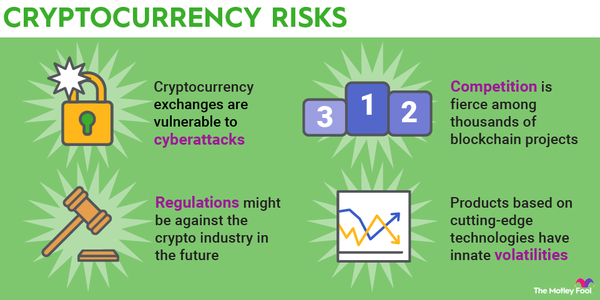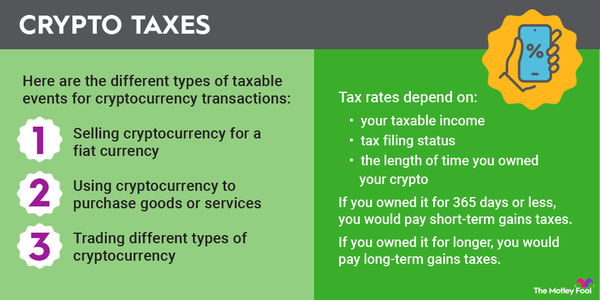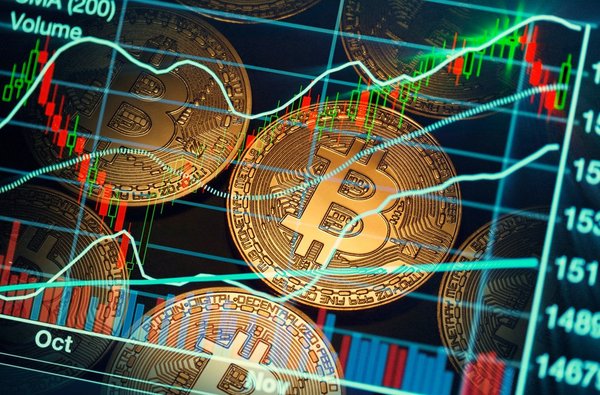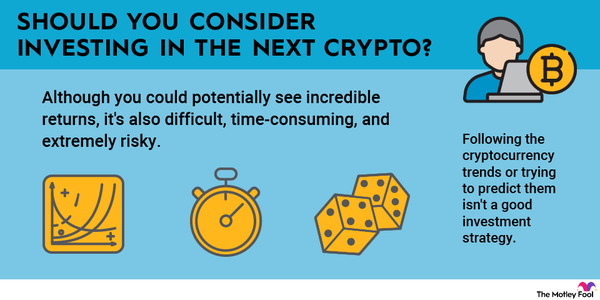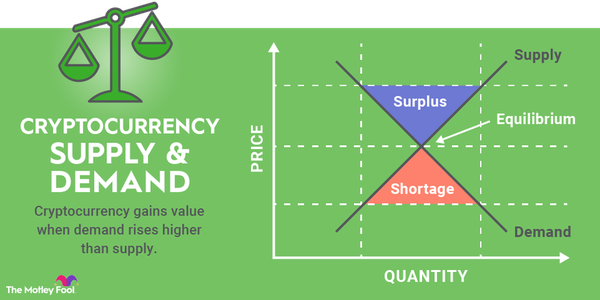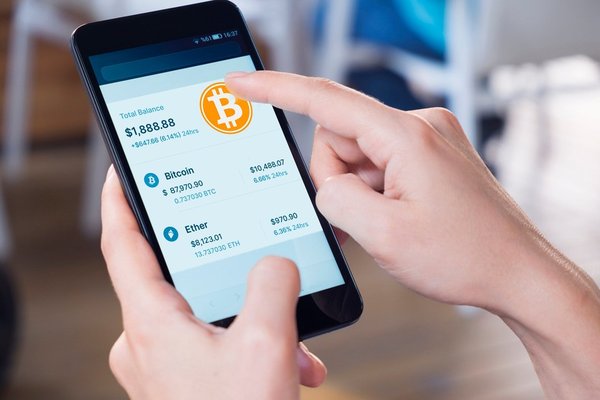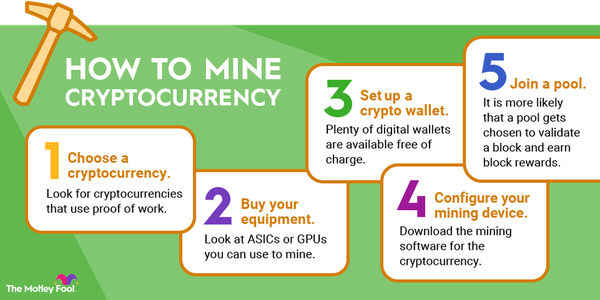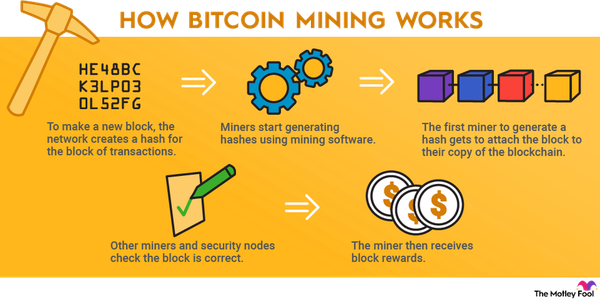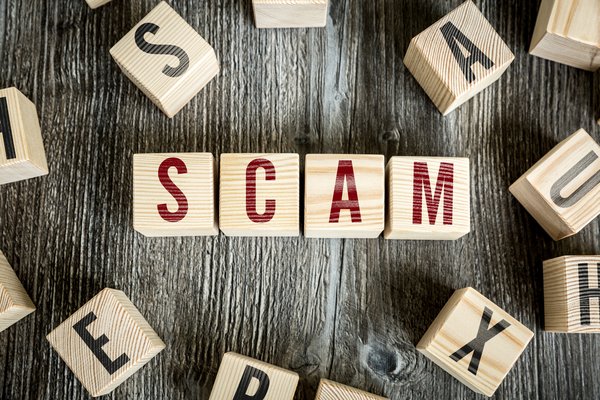Trading in cryptocurrencies will always come with some transaction fees. The crypto exchange you're using probably charges some fees of its own, and you can't get around the fee structures built into the cryptocurrencies themselves. But what are these fees, and how big can they get? Let's have a look.

What are they?
What are cryptocurrency transaction fees?
A transaction fee is a charge that is attached when you're buying or selling something. As the saying goes, there's no such thing as a free lunch. For cryptocurrencies, that means charging fees at a couple of different levels to keep the blockchain networks running.
Fees explained
Cryptocurrency transaction fees explained
Cryptocurrency transaction fees come in different varieties:
- Trading fees
- Blockchain wallet fees
- Built-in transaction fees
Crypto exchanges and trading services charge trading fees whenever you buy, sell, or exchange digital currencies on their platforms. This is a key moneymaking strategy for the exchanges on top of ancillary revenue streams, such as advertising, listing fees, and premium services.
Blockchain wallets that aren't part of a crypto exchange's standard service usually charge their own fees for each deposit or withdrawal. These fees typically support the wallet's development and maintenance.
Every cryptocurrency has transaction fees built into its basic operating structure. They make the system less vulnerable to spam and denial-of-service attacks and usually play an important part in how the cryptocurrency rewards the people providing transaction validation services.
Bitcoin (BTC -3.87%) calls it a network fee, Ethereum (CRYPTO:ETH) transactions result in gas fees, and the Solana (CRYPTO:SOL) platform simply refers to processing costs as transaction fees.
Ethereum (ETH)
The costs are automatically baked into the transaction price, so they're largely invisible to the buyer and seller. Still, you can bet that some additional value is changing hands behind the scenes. The names may vary, but they all boil down to the same idea of attaching a small expense to each transaction.
Network fees
How big are network fees?
Generally speaking, network fees tend to be small. For example, the median Bitcoin transaction fee over the past year was roughly $0.46.
However, the fees can skyrocket when the blockchain network is unusually busy. For example, Ethereum's gas fees skyrocketed to thousands of dollars per transaction in May 2022 when massive demand for a coveted series of Ethereum-based non-fungible tokens (NFTs) threw the network off-kilter for a few hours.
You can't avoid these transaction fees entirely, but you can minimize them by choosing cryptocurrencies, trading services, and digital wallets with care. These fees apply to every type of transaction, by the way. Whether you're buying and selling cryptocurrencies in a trading exchange or sending coins from one account to another, the blockchain network will ask for a small payment.
Fee schedule
Cryptocurrency exchange fee schedule
The rules and fee structures for cryptocurrency transactions are unique to each trading platform. Let's compare some of the most popular crypto exchanges.
Binance.us
Binance is the largest cryptocurrency trading platform in the world. It offers a few different trading methods, similar to a stock brokerage.
Transaction fees are higher for "takers," who use market orders that fill immediately at the current market price. "Makers," on the other hand, rely on limit orders that set a specific target price and may take longer to execute but have a lower transaction fee. Makers provide liquidity for other traders, while takers consume assets from the same liquidity pool.
Binance's transaction fees are based on your trading volume in the past 30 days and your transaction type. In September 2025, the company announced 0% maker fees and 0.01% taker fees on more than 20 of what it calls Tier 0 pairs, such as Bitcoin to USD, meaning you can trade between them in either direction.
Here are the requirements and the effective trading fees for makers (limit orders) and takers (market orders).
| Binance Level | 30-Day Trade Volume | Tier 0 Maker Fee/Taker Fee | Tier 1 Maker Fee/Taker Fee |
|---|---|---|---|
| VIP 1 | <$10,000 | Free / 0.0095% | 0.3800% / 0.5700% |
| VIP 2 | $10,000–$50,000 | Free / 0.0095% | 0.2375% / 0.3800% |
| VIP 3 | $50,000–$100,000 | Free / 0.0095% | 0.1425% / 0.2375% |
| VIP 4 | $100,000–$1 million | Free / 0.0095% | 0.0950% / 0.1900% |
| VIP 5 | $1 million–$20 million | Free / 0.0095% | 0.0760% / 0.1710% |
| VIP 6 | $20 million–$100 million | Free / 0.0095% | Free / 0.0095% |
| VIP 7 | $100 million–$300 million | Free / 0.0095% | Free / 0.0095% |
| VIP 8 | $300 million–$500 million | Free / 0.0095% | Free / 0.0095% |
| VIP 9 | >$500 million | Free / 0.0095% | Free / 0.0095% |
On top of this structure, Binance gives you a 5% discount on fees when you pay them from your BNB (BNB 5.02%) holdings.
Coinbase
Coinbase (COIN -2.26%) is one of the best-known crypto platforms in the U.S. Coinbase Coinbase will calculate a custom fee for every transaction on the platform's standard trading tool.
According to Coinbase, factors that influence the fee include "your chosen payment method, order size, market conditions, jurisdictional location, asset, and other costs we incur to facilitate your transaction." The effective trading price also usually includes a price spread, similar to the spreads you see when exchanging U.S. dollars for foreign currencies.
The basic Coinbase service tends to be a bit more costly than Binance and others. You can save a bit by using the Coinbase Advanced trading service, which charges fees but doesn't include a price spread because you're interacting more directly with the underlying blockchain networks. The subscription-based Coinbase One service, on the other hand, skips the Coinbase fee but usually includes a price spread in each transaction.
Robinhood
The popular stockbroker Robinhood (HOOD 0.72%) also offers trading services for a handful of cryptocurrencies. The company says your crypto trades are commission-free on Robinhood, with a 0% fee for any type of order.
While Coinbase and Binance earn revenue and profits from their transaction fees, Robinhood makes money in other ways. First, it doesn't actually execute crypto trades on its own. Instead, the company routes its incoming cryptocurrency orders to market makers in exchange for transaction rebates that are not passed on to the customer.
Crypto orders also are not executed at the current market price. Instead, you'll buy crypto tokens from Robinhood at a slightly inflated price and sell them at a lower price. The difference between effective transaction prices and current quotes tends to sit near 0.6%, which is in the same range as the fees charged by Binance.
Low fees
Cryptocurrency exchanges with low transaction fees
You'll never be able to avoid cryptocurrency transaction fees entirely, but you can choose to use services with lighter fee structures. Those fees can add up if you do a lot of trading in the crypto market.
Options with lower fees include Robinhood and Kraken. However, as noted above, every trading service will make some money on your crypto orders. The difference between the cheapest and most expensive option worked out to as much as 2% in some test runs, dropping down to a rounding error in other cases.
Related investing topics
The bottom line
The bottom line on cryptocurrency transaction fees
Overall, smaller investors have more to gain from picking the right service than well-heeled traders do. Just as you should take care to stick with reputable, trustworthy cryptocurrencies, your trading platform should back up its affordable transaction fees with ironclad data security, powerful cryptocurrency screening tools, and an unshakeable financial platform.
While looking for the right combination of these crucial features, you should consider investing in safer asset classes such as stocks instead. When well-respected corporations dip their toes in the crypto opportunity, you can gain exposure to the same thrilling but dangerous market by investing in these companies instead.
FAQ
Cryptocurrency transaction fees FAQ
Are there transaction fees for cryptocurrency?
Every cryptocurrency transaction includes a small fee to keep the underlying blockchain network running. Most trading platforms also add transaction fees or price spreads to collect some revenues from each crypto trade.
Which cryptocurrency has the lowest transaction fees?
Some cryptocurrencies were designed to manage everyday transactions, similar to credit cards and cash. They tend to come with lower built-in fees and quicker transaction processing. Examples include Dogecoin (CRYPTO:DOGE), Litecoin (CRYPTO:LTC), and Ripple (CRYPTO:XRP).
Your choice of trading platform will probably make a bigger difference to your fees, though.
How do I avoid crypto transaction fees?
Due to the way blockchain networks function, every transaction will incur a small fee. There's just no way around it.
To avoid exorbitant fees, lyou should double-check the included fees before finalizing any cryptocurrency transaction. You should also choose a crypto-trading service that fits your needs, balancing service features against flat fees and price spreads.









